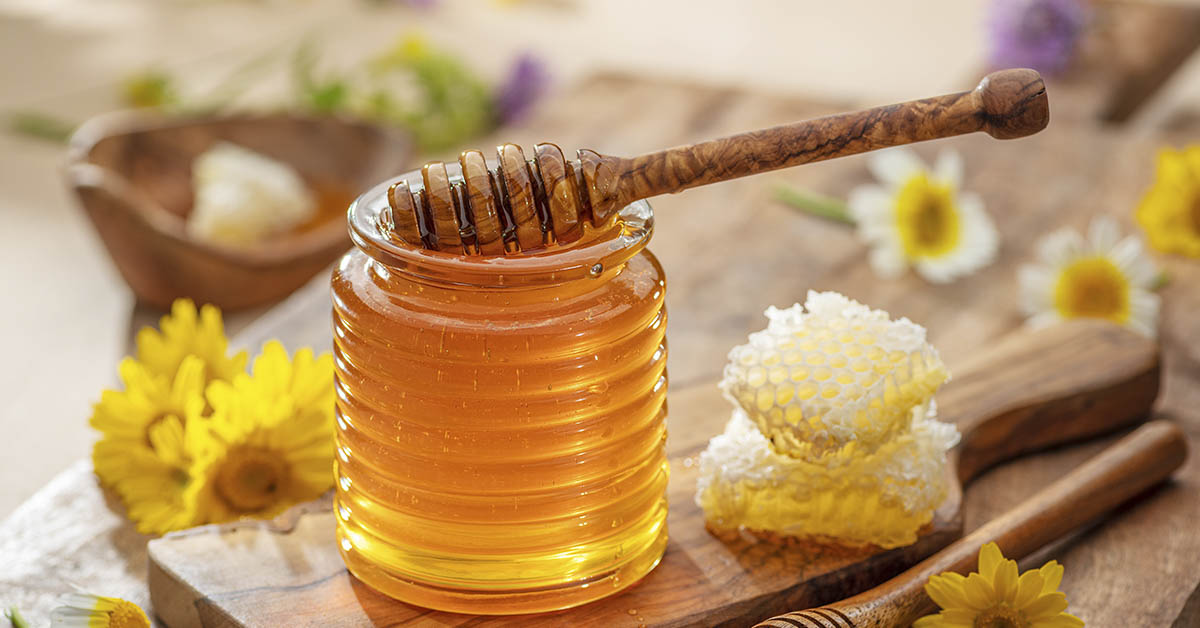Feeding a baby often comes with advice from friends, family, and social media. However, not all guidance is safe. One overlooked danger is honey. Many parents don’t realize the honey risks for babies, especially those under 12 months. A single spoonful can expose infants to harmful bacteria that may lead to paralysis.
Neurologists and pediatricians have raised concerns because honey can cause infant botulism, a serious illness linked to bacterial spores. While honey appears natural and wholesome, it poses a hidden threat to babies with developing immune systems.
This article explores why honey endangers infants, how botulism develops, and which symptoms demand immediate attention.
@doctor.bing 3 more things I don’t do as a Neurologist. #brain #neurology #brainhealth #neurologist #tiktoklearningcampaign #LearnOnTikTok #science #doctor #selfimprovement #mentalhealth ♬ original sound – Dr. Bing, MD MPH
Why Honey Endangers Infants
Honey contains spores of Clostridium botulinum, a bacteria found in soil, dust, and the environment. Adults and older children can handle these spores without issues. However, when talking about the risks of honey, babies under one year lack the gut bacteria needed to stop these spores from growing.
Once inside the baby’s body, the spores can produce a toxin that damages the nervous system. This makes infant botulism and honey a dangerous combination. Even a tiny amount of honey can trigger the illness.
Importantly, no type of honey is safe, even if it is raw, organic, pasteurized, or processed. You can’t detect the spores by sight, smell, or taste. Therefore, avoiding honey entirely during a baby’s first year is the only way to eliminate the risk.
How Botulism Develops in Babies
After ingestion, spores settle in the baby’s gut. There, they multiply and release a neurotoxin that blocks nerve signals. As a result, muscles begin to weaken.
Typically, symptoms appear 3 to 30 days later. Constipation often shows up first. Honey risks for babies include more serious botulism symptoms that can develop, such as:
- Weak crying
- Trouble sucking or feeding
- Drooping eyelids
- Floppy arms and legs
- Lethargy and breathing difficulties
This condition can worsen quickly. In severe cases, babies need emergency care and breathing support. Fortunately, doctors can treat it using immune globulin, which neutralizes the toxin. However, early detection remains essential for a full recovery.
Read More: Fire Safety Tips for Preventing House Fires, from the Laundry Room to the Kitchen
What Experts Recommend
Doctors and health experts continue to warn against giving honey to babies under 12 months. Dr. Mona Amin, a board-certified pediatrician, stresses that “even a taste” can be dangerous.
The American Academy of Pediatrics, CDC, and other health organizations fully support this guidance. They urge parents to wait until after the first birthday before introducing honey.
Still, some parents mistakenly believe that cooking or processing honey makes it safe. Unfortunately, that’s not true. Botulism spores survive heat, pasteurization, and baking. As a result, honey-flavored snacks and baked goods still carry the same risks for babies.
Likewise, avoid using honey in home remedies for teething or coughs. Safer, pediatrician-approved alternatives exist, such as saline drops or infant pain relievers.
What to Do if a Baby Eats Honey
If your baby accidentally consumes honey, don’t panic, but act quickly. Begin by watching for symptoms, especially constipation. Stay alert for weak cries, feeding problems, or limp limbs.
If you notice anything concerning, contact your pediatrician right away. In some cases, your doctor may recommend going to the emergency room. Prompt treatment often leads to a full recovery.
Even if your baby appears fine, inform your doctor. They can help you monitor your child and offer advice on next steps.
When Honey Becomes Safe
Once your child turns one, their digestive system becomes strong enough to handle spores safely, minimizing the honey risks for babies. This marks the point when honey becomes safe to introduce.
Still, use it in moderation. Honey is high in sugar and may contribute to tooth decay or weight gain. Mix small amounts into yogurt or cereal, but don’t overdo it.
Until that first birthday, it’s best to skip honey entirely. Use natural fruit purees or doctor-recommended products instead.

The Bottom Line
Although honey looks innocent, it poses serious risks for babies under one year. Doctors link this natural sweetener to infant botulism and honey, a condition that causes muscle weakness and breathing trouble.
By recognizing early botulism symptoms and acting fast, parents can protect their babies from serious harm. Pediatricians strongly advise keeping honey away from infants in every form.
Once your child turns one, you can introduce honey gradually and in small amounts. Until then, play it safe and avoid it altogether. This simple choice can prevent a serious illness and give you peace of mind.
Read More: 10 Water Safety Tips From a Mom Who Investigates Drownings

